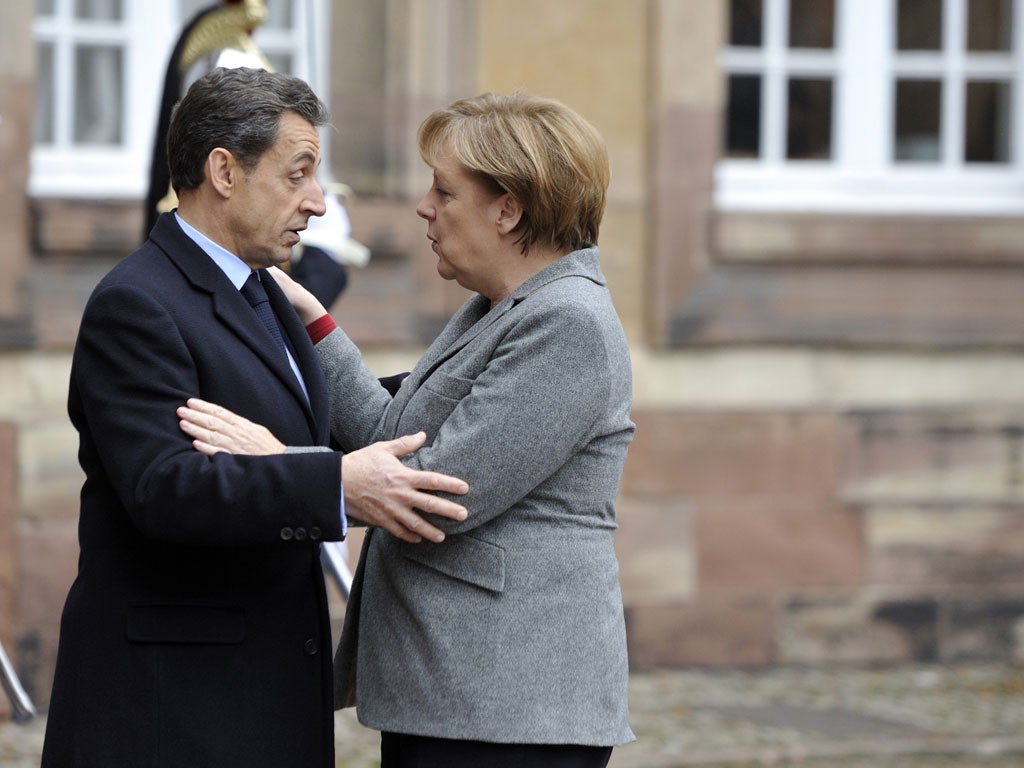
France's President Nicolas Sarkozy and the German Chancellor Angela Merkel will meet in Paris today for a business lunch which could shape the outcome of the most critical week in EU history.
The success or failure of their talks will influence, but not entirely guarantee, the outcome of a profoundly hazardous EU summit in Brussels on Thursday and Friday. Another failed or fudged attempt to resolve the two-year-old eurozone debt crisis could panic markets, explode the euro, cripple banks and tip Western economies into deep recession.
Officials say France and Germany have edged closer in recent days but differences remain. President Sarkozy and Chancellor Merkel now agree that the survival of the euro depends on chaining the bloc's 17 economies together with more rigorous rules on debt and deficits. If EU treaty changes are promised to this effect, Germany has hinted that it will ease its objections to a short-term "fix". In other words, it would turn a blind eye to the European Central Bank extending its efforts to prop up heavily indebted nations.
However, landmark speeches by the French and German leaders within 24 hours on Thursday and Friday last week revealed some radical differences in approach.
Ms Merkel wants a legally binding fiscal union – a move towards a "United States of Europe". Fiscal policies would be overseen by an EU national budget commissioner and penalties would be enforced by the European Court of Justice.
President Sarkozy says this would be a surrender of national sovereignty. Fiscal rules and penalties should be more rigorous, he says, and there should be majority voting to force backsliders into line. But final decisions must not be "supranational" and technocratic. There is also concern in European capitals that Berlin's suggestions amount to a German attempt to have a greater say over their domestic fiscal policies.
There is another point of contention. Chancellor Merkel wants the treaty amendments to be agreed by all 27 member states. Mr Sarkozy wants changes to be signed only by the "Euroland 17", possibly in the form of a protocol to the existing treaty.
Subscribe to Independent Premium to bookmark this article
Want to bookmark your favourite articles and stories to read or reference later? Start your Independent Premium subscription today.

Join our commenting forum
Join thought-provoking conversations, follow other Independent readers and see their replies